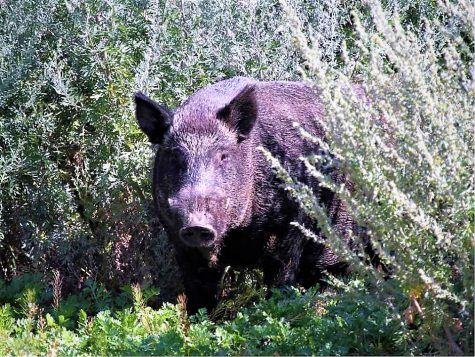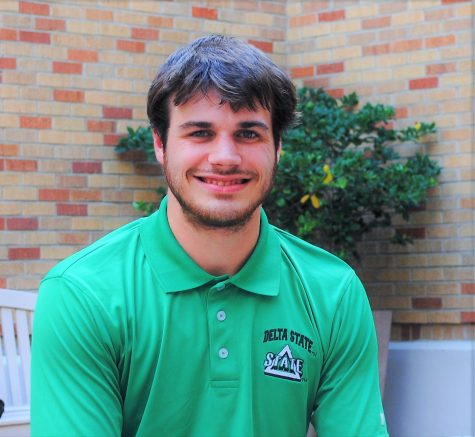In the Woods of the County of Flanders: the year 1088 A.D.
The chase was on!

The boar charged through the trees, brushing by bushes as often as he could in a futile attempt to get away from his pursuers who were bearing down on him as they flew through the woods on agile steeds. He was wearing out and he knew it. He must soon find the right place and time to face his attackers and make a last stand. Fortunately, there were only five, and at least one of them was too young to be much of a threat. He could tear up the horses if their riders were foolish enough to lead them too close to his sharp tusks, which would then surely follow with the rider falling off of his steed. Then it would be only a matter of seconds before that human was dead and he could move on to another. He could hardly wait for such a fantastic victory!
Yet, he was wary of their bows and spears, although, because of his tough hide, arrows would not hurt him as much as other more timid creatures such as the roe and the stag. He knew that he must act fast and throw off all fear if he was to have a fighting chance. The moment must come very soon, for his legs cannot keep running for much longer… So, at last, he whips about and fearlessly charges his pursuers, and they split up. Undaunted, he continues to chase the horse, upon which the oldest human (in his mid-50’s and obviously the leader) sits, determining to bring him down.
Now the pursuer is being pursued, and the boar delights in his apparent success as he terrorizes man and beast the way they were threatening him. In his eagerness for the kill, he forgets his fatigue and runs with new energy, and seems to be gaining on the horse. Suddenly, he feels something hard and sharp pierce into his side, and he collapses. As his vision fades, he glares with hatred at his killer: a tall, 20-year-old Norman squire.
“You did it, Mark!” cried John, Mark’s 15-year-old brother, in exhilarating relief, “And just in time! He was really gaining on Count Robert!”
The middle-aged Count’s 21-year-old son, Robert II, called out, “Father! Your squire, Mark, killed the boar!” He then thanked Mark as his father, Robert I of Flanders, joined them.
Mark firmly spoke up. “I beg your pardon, my lord. It was my recklessness that put us all into this trouble. I endangered the lives of you and all those here.”
As he said this, everyone dismounted. While Mark was the squire of the elder Robert, John was the new squire of the younger Robert. In fact, John’s graduation from page to squire was one of the principle reasons for this particular gathering, for the squires had another brother, Luke, who was the squire of Robert Curthose of Normandy. He had been invited to join them for a stag hunt. Unfortunately, they found the boar first and almost immediately pursued after it without second thinking of the dangers that such a hunt would bring. They also had another brother, Matthew (aged 21), who had a vocation and was studying for the priesthood at the monastery of Bec in Normandy under the saintly abbot Anselm.
“Nonsense!” said Robert I, also known as the Frisian, “It was not your fault anyway. As you eagerly pointed out this boar with your heart a racing, mine raced quicker than yours and forgot all dangers. It was I who was being foolish. I probably deserved to be the sport of that devil of a beast. But see what has been accomplished! You have killed your first boar, and that is no easy task. There have not been many squires who have done such a deed…” He stopped until they had finished packing up the boar and were ready to head back to Gent, the capital of the county of Flanders before he continued, “And this boar was no ordinary one. They usually just turn around and just stand there, threatening whoever comes close. This one turned around and charged! I will not deny that fear began to creep up on me as it pursued after me. I think it is incredible to think that one boar could seem to be more fearful and dangerous than an entire army!”
“Truly,” said Robert II, “for with an army standing before you, you often have time to organize and make strategic decisions. There was no time for that here.” After a pause, he continued. “I’d love to have an opportunity to fight in an organized battle sometime soon.”
“That day may soon come,” said his father, “for presently, we have problems enough close to home. There is trouble brewing between Robert, the Duke of Normandy, and his brother William II, King of England.”
“Yes,” said Luke, “And after a truce too, but it isn’t entirely his fault. He was trying to forgive and forget the humiliation that his brothers gave him many years ago by dumping a full chamber-pot on his head. He had even gone to war for it soon after it happen because his brothers never would say sorry for it. To top it off, his father William sided with them rather than calling for justice. All these misunderstandings and wars made William want to disinherit him completely when he died. It was very fortunate that he did finally consent to give him the Dukedom of Normandy. But because he was the oldest, it would have made more sense to give Robert the Kingdom of England. However, as I said, he was trying to forgive and forget, and the brothers made an agreement that whoever died first, would inherit the other’s land. However, several barons, including William I’s half-brother, Odo, decided that it would be better if Robert was the sole ruler of England and Normandy. So, they began to stir an uprising and cause trouble in England. They now await Robert’s coming.”
“That was very well said,” Count Robert I agreed. “Yes, and I fear it may not be long now…He will probably wait until after Easter, which is coming up next week.”
Then after a long pause of reflection, he turned toward his squire and spoke. “Mark, I have been thinking on this for several days now, and I believe the time has come for you to take on the rank of knighthood. For a while at least you will fight alongside me under my banner. We shall perform the ceremonies come Easter Sunday. Meanwhile, prepare well for this special honor.”
“My lord, I shall. I am most unworthy of this honor, but I will use all my strength to serve your banner with honor!”
“I know you will. You have been with me for many years, through many combats. You have learned fast and have quickly grown into a strong young man. Your qualities are in great demand on the battlefield, and I know I can depend on you. This day’s deed in killing the boar only gives another example of your cool-headedness in the face of danger.”
John spoke up, “Doesn’t this coincide with Matthew’s ordination at Bec?”
“Why, so it does!” said Luke.
John said again, “Sometimes the great coincidences of life are so amazing and seem to be ordained by God Himself.”
“It also seems that God has ordained that we make it back safely,” said Robert I, “Listen to the trumpets and cheers that greet our arrival!”

Wyatt is 22 years old and came all the way from Terry, Miss., to pursue a history major at Delta State University. He is a junior and plans to continue...


